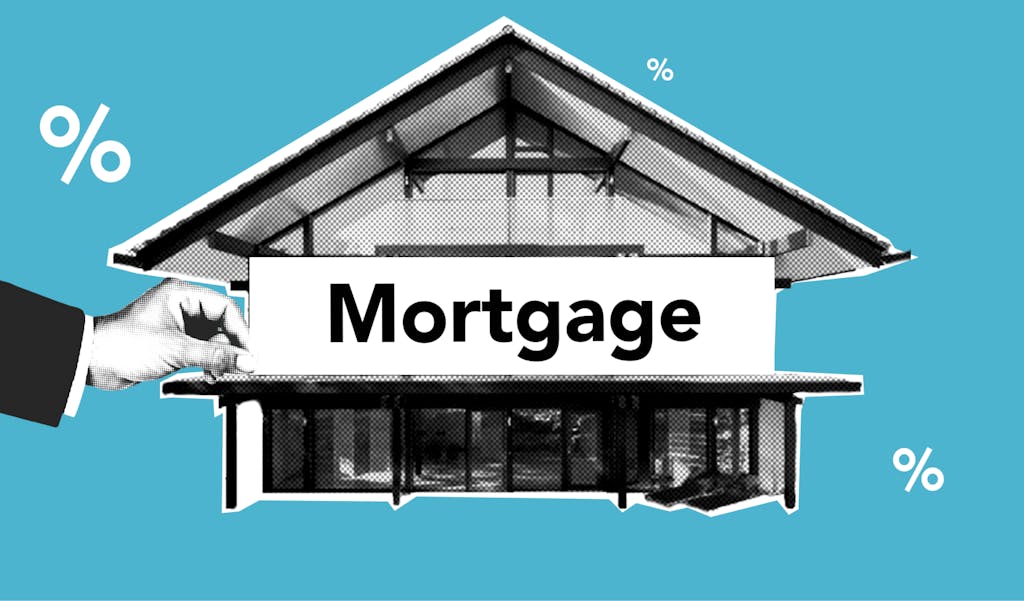Unlocking Your Home Dreams: Why Credit Score Is Key
In the intricate dance of homeownership aspirations, there exists a silent yet powerful gatekeeper that holds the key to your dream abode—your credit score. Imagine it as the secret code to unlocking the doors of possibility in the realm of real estate, a numerical reflection of your financial trustworthiness that could either make or break your home-buying journey. Whether you’re a seasoned property enthusiast or a first-time buyer dipping your toes into the vast sea of residential opportunities, understanding the pivotal role of your credit score is not just advisable; it’s downright essential. Embark with us on a journey of enlightenment as we delve into the multifaceted landscape of credit scores and unravel the mysteries behind why they reign supreme in the realm of home buying. From demystifying the intricate algorithms that determine your creditworthiness to exploring the tangible impact your score can have on securing your dream home, this blog post is your compass through the labyrinthine world of real estate finance. Join us as we navigate the winding roads of mortgage approvals and the significance of a healthy credit score, shedding light on why this seemingly innocuous number wields unparalleled power in shaping your homeowner destiny. Welcome to a realm where dreams and digits converge: welcome to the illuminating realm of understanding why your credit score is the ultimate key to unlock your home dreams.
The Fundamentals of Credit Scores: Decoding the Numbers
Before we dive into the nitty-gritty details of how credit scores impact mortgage approval and the role they play in home loan interest rates, let’s start by understanding the fundamentals. Your credit score is a three-digit number that represents your creditworthiness. It is calculated based on various factors such as your payment history, outstanding debts, length of credit history, types of credit used, and new credit applications.
The most commonly used credit scoring model is the FICO score, which ranges from 300 to 850. The higher your score, the better your creditworthiness. Lenders use this score to assess the risk associated with lending you money for a mortgage or any other type of loan.
It’s important to note that different lenders may have their own criteria for evaluating credit scores. However, understanding the general principles behind how these scores are calculated can give you a solid foundation for improving and maintaining a healthy credit score.
How Credit Scores Impact Mortgage Approval: The Crucial Connection
Now that we have a grasp on what credit scores are, let’s explore their significance in the context of mortgage approval. When you apply for a home loan, lenders consider your credit score as one of the key factors in determining whether to approve your application.
A high credit score indicates that you have a history of responsible financial behavior and are likely to repay your mortgage on time. This makes you less risky in the eyes of lenders and increases your chances of getting approved for a mortgage with favorable terms and interest rates.
On the other hand, if your credit score is low, lenders may view you as a higher risk borrower. This could result in either outright rejection or approval with less favorable terms such as higher interest rates or larger down payment requirements.
It’s crucial to remember that your credit score is not the only factor lenders consider when evaluating your mortgage application. They also take into account your income, employment history, debt-to-income ratio, and other financial factors. However, a healthy credit score can significantly improve your chances of securing a mortgage and achieving your homeownership dreams.
Building Blocks of a Healthy Credit Score: Tips and Tricks
Now that we understand the importance of credit scores in the home buying process, let’s explore some tips and tricks for building and maintaining a healthy credit score.
1. Pay Your Bills on Time: Payment history is one of the most significant factors influencing your credit score. Make sure to pay all your bills, including credit card payments, loan installments, and utility bills, on time.
2. Keep Your Credit Utilization Low: Credit utilization refers to the percentage of available credit you’re using. Aim to keep it below 30% to demonstrate responsible borrowing behavior.
3. Diversify Your Credit Mix: Having a mix of different types of credit accounts (e.g., credit cards, loans) can positively impact your credit score. However, be cautious about opening too many new accounts at once as it may negatively affect your score.
4. Regularly Check Your Credit Reports: Monitor your credit reports from all three major credit bureaus (Equifax, Experian, TransUnion) for any errors or fraudulent activity that could harm your score.
By following these tips and adopting responsible financial habits, you can gradually improve or maintain a healthy credit score that will open doors to favorable mortgage terms and ultimately help you achieve homeownership.
Credit Score Ranges: Where Do You Stand?
Now that we’ve covered the basics of credit scores and their impact on mortgage approval, let’s take a closer look at the different credit score ranges and where you might stand.
The FICO score ranges are as follows:
- Excellent: 800-850
- Very Good: 740-799
- Good: 670-739
- Fair: 580-669
- Poor: Below 580
If your credit score falls within the excellent or very good range, congratulations! You’re in a strong position to secure favorable mortgage terms. However, if your score is in the fair or poor range, don’t despair. There are still steps you can take to improve your creditworthiness and increase your chances of homeownership.
Credit Reports: Unveiling Your Financial Portrait
Now that we have a clear understanding of credit scores and their impact on mortgage approval, let’s delve into another crucial aspect—credit reports. Your credit report is a detailed record of your financial history and includes information such as your personal details, credit accounts, payment history, outstanding debts, and public records (e.g., bankruptcies).
Lenders use this information to assess your creditworthiness and make informed decisions about lending you money. It’s essential to regularly review your credit reports for accuracy and address any errors promptly.
You’re entitled to one free copy of your credit report from each of the three major credit bureaus annually. Take advantage of this opportunity to stay informed about your financial portrait and ensure its accuracy.
Improving Your Credit Score: Strategies for Success
If you find yourself with a less-than-desirable credit score, don’t worry. There are several strategies you can employ to improve your creditworthiness over time.
1. Pay Off Outstanding Debts: Focus on paying off any outstanding debts, starting with those that have the highest interest rates. This will not only reduce your debt burden but also demonstrate responsible financial behavior.
2. Avoid Closing Old Credit Accounts: While it may be tempting to close old credit accounts, doing so can actually harm your credit score. Keep these accounts open and use them responsibly to build a positive credit history.
3. Limit New Credit Applications: Each time you apply for new credit, it triggers a hard inquiry on your credit report, which can temporarily lower your score. Be selective about applying for new credit and only do so when necessary.
4. Be Patient and Persistent: Improving your credit score takes time and consistent effort. Stay committed to responsible financial habits, and you’ll gradually see positive changes in your score.
The Role of Credit Score in Home Loan Interest Rates
We’ve established that a healthy credit score is crucial for mortgage approval, but did you know it also plays a significant role in determining the interest rate you’ll pay on your home loan?
Lenders use risk-based pricing when setting interest rates for borrowers. This means that borrowers with higher credit scores are generally offered lower interest rates as they are considered less risky to lend money to.
Conversely, if your credit score is lower, lenders may view you as a higher-risk borrower and charge a higher interest rate to compensate for the increased risk they’re taking by lending you money.
The difference in interest rates between borrowers with excellent credit scores and those with poor scores can be substantial over the life of a mortgage loan. By improving your credit score before applying for a home loan, you can potentially save thousands of dollars in interest payments.
Credit Score Mistakes to Avoid: Pitfalls on the Path to Homeownership
As you navigate the path to homeownership, it’s essential to be aware of common credit score mistakes that could hinder your progress. Avoiding these pitfalls will help you maintain a healthy credit score and increase your chances of securing a mortgage.
1. Late Payments: Consistently paying your bills late or missing payments altogether can have a significant negative impact on your credit score. Set up automatic payments or reminders to ensure you never miss a payment deadline.
2. Maxing Out Credit Cards: Utilizing too much of your available credit can signal financial distress and negatively affect your credit score. Aim to keep your credit utilization below 30% for each credit card and overall.
3. Closing Old Credit Accounts: As mentioned earlier, closing old credit accounts can harm your credit score by reducing the average age of your accounts and decreasing the total available credit.
4. Ignoring Your Credit Reports: Regularly monitoring your credit reports is crucial for identifying errors or fraudulent activity that could harm your score. Ignoring this important step may result in unnecessary damage to your creditworthiness.
Credit Score Myths Debunked: Separating Fact from Fiction
There are numerous myths surrounding credit scores that can lead to confusion and misinformation. Let’s debunk some common misconceptions and separate fact from fiction:
Myth 1: Checking Your Credit Score Lowers ItFact: Checking your own credit score is considered a soft inquiry and does not impact your score negatively.
Myth 2: Closing Credit Cards Boosts Your ScoreFact: Closing unused or old credit cards may actually lower your credit score by reducing your available credit and shortening your credit history.
Myth 3: You Need to Carry a Balance on Your Credit CardsFact: Carrying a balance does not improve your credit score. Paying off your credit card balances in full and on time demonstrates responsible financial behavior.
Myth 4: Closing Delinquent Accounts Removes Them from Your Credit ReportFact: Closing delinquent accounts does not remove them from your credit report. The negative information associated with those accounts will still be visible for a certain period of time.
Conclusion: Empowering Your Homeownership Journey through Credit Score Mastery
Your credit score is more than just a number; it’s the key that unlocks the doors to homeownership. By understanding the fundamentals of credit scores, their impact on mortgage approval, and the strategies for improving them, you can take control of your financial destiny.
Remember to regularly monitor your credit reports, avoid common mistakes that can harm your score, and debunk any myths that may cloud your understanding. With patience, persistence, and responsible financial habits, you can master the art of credit scoring and embark on a successful homeownership journey.
So, don’t let your dreams remain locked away. Start today by empowering yourself with knowledge about credit scores and take the first step towards unlocking your home dreams.


